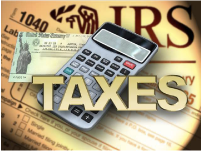CARL WATTS & ASSOCIATES
September 21, 2015

|
Washington DC
|
tel/fax 202 350-9002 |
|
Starting a new business involves a lot of preparation and effort, not in the least of the pecuniary kind. Being your own boss may be exhilarating and quite rewarding, a dream coming true for many of us, but it does entangle a lot of responsibility as well. Knowing what your responsibilities are tax wise will certainly help you in your endeavors to achieve success with your business.
|
|
|
|
The first thing to consider from the taxation point of view is the choice you make on the type of structure for your business, as the type of business you choose will determine which tax forms you will file and what type of business taxes you may have to pay.
|
|
From this perspective, your business may be organized as a sole proprietorship, partnership or corporation.
 |
|
A sole proprietorship is an unincorporated business owned by an individual. A sole proprietorship has no existence apart from its owner. Business debts are personal debts of the owner. A limited liability company (LLC) owned by one individual is treated as a sole proprietorship for federal income tax purposes, unless the owner elects to treat the LLC as a corporation. A sole proprietor files Schedule C, Profit or Loss from Business (Sole Proprietorship), or Schedule C-EZ, Net Profit From Business, to report the income and expenses of the business and reports the net business earnings on Form 1040, U.S. Individual Income Tax Return.
|
|
|
|
A partnership is an unincorporated business organization that is the result of two or more persons joining to carry on a trade or business, a financial operation or venture. Each person contributes money, property or services in return for a right to share in the profits and losses of the partnership. An LLC with more than one owner is treated as a partnership for tax purposes, unless the LLC elects to be treated as a corporation. A partnership reports its income and expenses on Form 1065, U.S. Return of Partnership Income. The partnership does not itself pay income tax. Each partner receives a Form 1065, Schedule K-1, Partner's Share of Income, Deductions, Credits, etc., that indicates the partner's distributive share of partnership income, expenses and other items, determined in accordance with the terms of the partnership agreement. Partners report on their income tax returns the amounts reported on the Schedule K-1. |
|
The term corporation, for federal income tax purposes, generally includes a legal entity separate from the persons who formed it under federal or state law or the shareholders who own it. It also includes certain businesses that elect to be taxed as a corporation by filing Form 8832, Entity Classification Election. Corporations report their income and expenses, and calculate their tax on Form 1120, U.S. Corporation Income Tax Return.
|
|
A Limited Liability Company (LLC) is a business structure allowed by state statute. Each state may use different regulations, and you should check with your state if you are interested in starting a Limited Liability Company.
|
|
|
|
Owners of an LLC are called members. Most states do not restrict ownership, and so members may include individuals, corporations, other LLCs and foreign entities. There is no maximum number of members. Most states also permit “single-member” LLCs, those having only one owner.
|
|
|
|
|
| Depending on elections made by the LLC and the number of members, the IRS will treat an LLC as either a corporation, partnership, or as part of the LLC’s owner’s tax return (a “disregarded entity”). Specifically, a domestic LLC with at least two members is classified as a partnership for federal income tax purposes unless it files Form 8832 and affirmatively elects to be treated as a corporation. |
|
|
|
You may need to get an EIN (Employer Identification Number) for federal tax purposes. Search “do you need an EIN” on IRS.gov to find out if you need this number. If you do need one, you can apply for it online. |
|
There are four general types of business taxes: income tax, self-employment tax, employment tax and excise tax. In most cases, the types of tax your business pays depends on the type of business structure you set up. You may also need to make estimated tax payments.
|
| Income Tax |
|
|
| All businesses, except partnerships, must file an annual income tax return. Partnerships file an information return. The form you use depends on how your business is organized. |
|
|
| As far as business income is concerned, you’d better read one of our recent newsletters that dwells on the subject. |
| The federal income tax is a pay-as-you-go tax, as you probably know. You must pay the tax as you earn or receive income during the year. An employee usually has income tax withheld from his or her pay. If you do not pay your tax through withholding, or do not pay enough tax that way, you might have to pay estimated tax. If you are not required to make estimated tax payments, you may pay any tax due when you file your return. |
|
Self-Employment Tax
|
|
Self-employment tax (SE tax) is a social security and Medicare tax primarily for individuals who work for themselves. Your payments of SE tax contribute to your coverage under the social security system. Social security coverage provides you with retirement benefits, disability benefits, survivor benefits, and hospital insurance (Medicare) benefits. |
and Tax Requirements
|
Troubles viewing this message? View in browser online here
|

| Generally, you must pay SE tax and file Schedule SE (Form 1040) if either of the following applies: |
|
|
| Employment Taxes |
| When you have employees, you as the employer have certain employment tax responsibilities that you must pay and forms you must file. Employment taxes include the following: |
|
|
|
|
You can choose to use only independent contractors instead of employees in your business, in this case you may have to file Form 1099-MISC, Miscellaneous Income, to report payments for services performed for your trade or business. If the following four conditions are met, you must generally report a payment as non-employee compensation. |
|
|
|
|
Excise Tax |
|
You may have to pay excise taxes and file certain forms if you do any of the following: |
|
|
|
|
| Form 720 - The federal excise taxes reported on this form consist of several broad categories of taxes, including environmental taxes, communications and air transportation taxes, fuel taxes, tax on the first retail sale of heavy trucks, trailers, and tractors, and manufacturers taxes on the sale or use of a variety of different articles. |
| Form 2290 - There is a federal excise tax on certain trucks, truck tractors, and buses used on public highways. The tax applies to vehicles having a taxable gross weight of 55,000 pounds or more. |
| Form 730 - If you are in the business of accepting wagers or conducting a wagering pool or lottery, you may be liable for the federal excise tax on wagering. |
| Form 11-C - Use this form to register for any wagering activity and to pay the federal occupational tax on wagering. |
| Employee Health Care. As a business owner, you should know that the Small Business Health Care Tax Credit may help your mall businesses (and tax-exempt organizations) pay for health care coverage you offer your employees. A small employer is eligible for the credit if it has fewer than 25 employees who work full-time, or a combination of full-time and part-time. The maximum credit is 50 percent of premiums paid for small business employers and 35 percent of premiums paid for small tax-exempt employers, such as charities. |
 |
| Your accounting method is also an important factor as far as taxes are concerned as it will determine when to report income and expenses. You must use a consistent method. The two that are most common are the cash and accrual methods. Under the cash method, you normally report income and deduct expenses in the year that you receive or pay them. Under the accrual method, you generally report income and deduct expenses in the year that you earn or incur them. This is true even if you get the income or pay the expense in a later year. |
| Every item mentioned above can easily be a subject for a separate newsletter, our aim was only to summarize here different tax aspects you may have to deal with when you start your own business. |
| It would probably go without saying, especially with such an endeavor as of having your own small business, still we prefer to urge you again to secure help and advice from a tax and/or financial advisor in all your dealings with the IRS. |